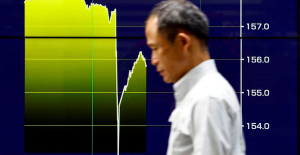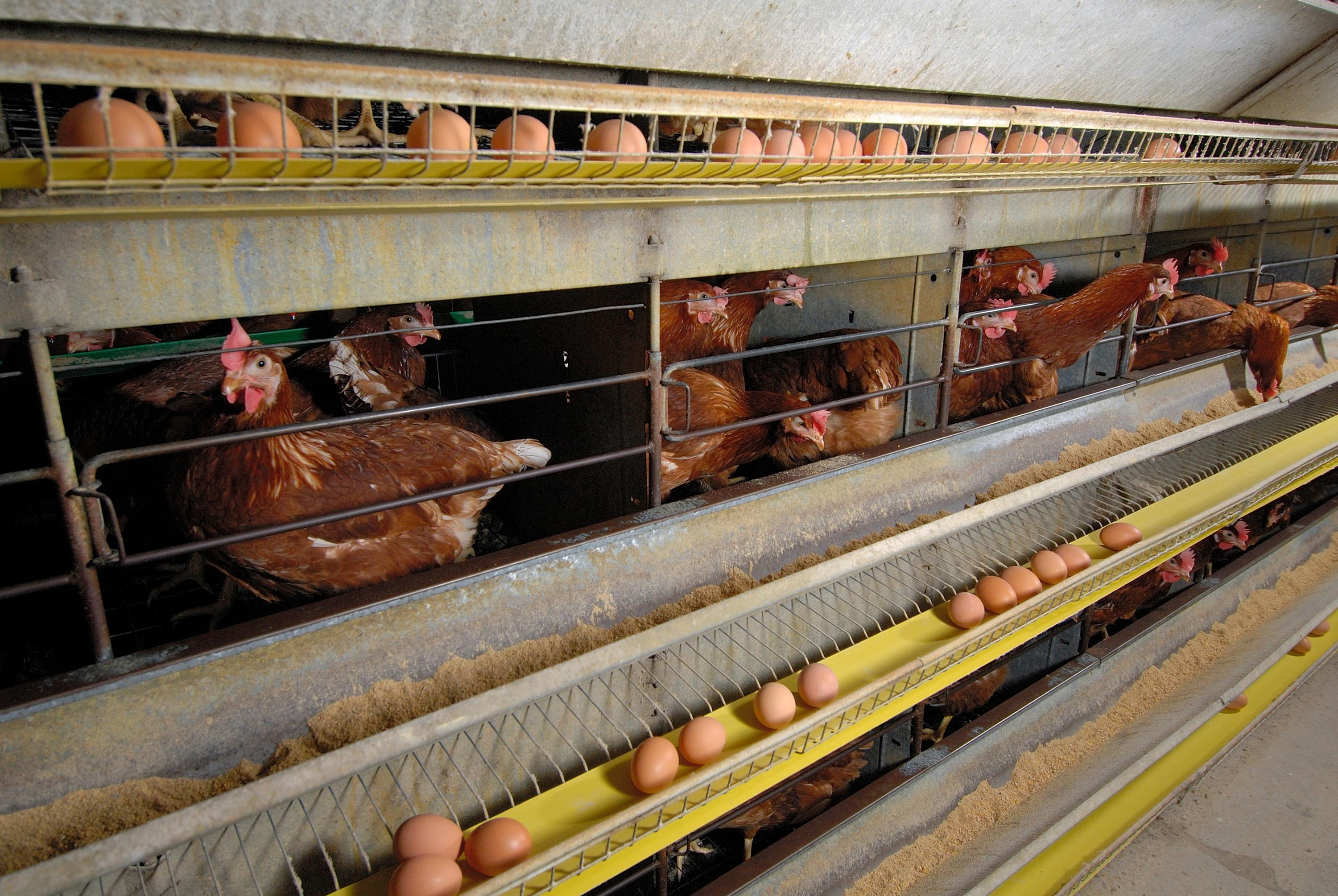The official data made public today by the National Statistics Office (ONE) are above what was expected by analysts, who predicted an increase of 0.9% in quarter-on-quarter terms and 5% in the year-on-year comparison.
The GDP data exceeds the records of the previous quarter, the last of 2023, when the GDP rose by 1% compared to the previous quarter of the year and 5.2% in 2023, the year in which the authorities of the Asian country set new growth objective for this year "around 5%".
Throughout the first quarter, Chinese GDP reached around 29.63 trillion yuan (4.1 trillion dollars, 3.86 trillion euros), according to preliminary estimates released today by the ONE.
By sectors, the primary sector grew 3.3% year-on-year between January and March; the secondary, 6%, and the tertiary, 5%.
The ONE has also made public today the official data for March on industrial production (4.5% year-on-year), retail sales (3.1%) and the official unemployment rate in urban areas, which fell to 5.2%.
The statistical institution assures that the data show that the Chinese economy had "a good start" to the year, "prolonging its good momentum of recovery," reports Efe.
"Policies continued to have an effect; production and demand remained stable and increased; employment and prices were generally stable, market confidence continued to rise, and 'high-quality development' made new progress," it notes. The document.
Although the ONE considers that "the positive factors accumulate and lay solid foundations to achieve the annual objectives" of growth, it also warns once again that the external environment "is increasingly complex, serious and uncertain" and that these foundations "are still not solid" when it comes to achieving "stable and firm" growth.
For Harry Murphy Cruise, of Moody's Analytics, the GDP expansion is a "very solid result", although he warns of the "growing imbalance" between the weight of the manufacturing industry - especially incipient sectors such as electric vehicles, solar panels and batteries - and the contribution of household spending.
"Without households, the (Chinese) economy is vulnerable to external shocks" such as the possibility of the United States or the European Union applying tariffs on the aforementioned products due to concerns about "excess capacity," says Cruise, who believes that The medium-term growth of the second world power will depend on the authorities convincing households to "open their wallets" so as not to have "all their eggs in the same basket."
For her part, Louise Loo, from Oxford Economics, sees risks in the reversal of the inventory accumulated during these last months of great industrial activity, the normalization of household spending after the Lunar New Year festive season or the "caution" in the stimuli after an "acceptable" start to the year, which is why it predicts that this year's growth will be 4.7%.
Zichun Huang of Capital Economics assures that the recovery "remains fragile" and adds that, while short-term fiscal stimulus will provide support, it will not prevent a new slowdown as the Chinese economy "faces headwinds" from structural type, especially in the real estate sector.
One of the main causes of the recent slowdown of the Chinese economy is precisely the crisis in the real estate sector, whose weight on the national GDP - adding indirect factors - was estimated at around 30%, according to some analysts.
In this last regard, it is worth highlighting the evolution of new housing prices that have also been made public today and that have fallen for the tenth consecutive month, which show that the prolonged housing crisis in the Asian country continues without reaching bottom. despite the support measures announced by the authorities.
Prices in 70 selected cities fell 0.34% compared to the previous month, according to calculations taken from the ONE, which reflected a decrease of 0.4% in February.
Additional calculations by Bloomberg show that new home prices fell 2.7% year-on-year - in February, the decline had been 1.9% - and that used home prices fell 0.53% month-on-month or 5.9% year-on-year.
A Goldman Sachs report cited yesterday by the Hong Kong newspaper South China Morning Post suggests that Chinese authorities would need the equivalent of about $2.1 billion to resolve the sector's problems, specifically citing funding for unfinished developments, reducing excess of housing inventory to "normal levels" or curb the contraction in construction activity.
Also today, the ONE indicated that investment in real estate development fell 9.9% year-on-year in the first quarter.
Figures from the statistical agency also show that, until March, commercial sales measured by floor area fell by 19.4% compared to the first quarter of last year; This indicator had already fallen by 24.3% in 2022 and another 8.5% in 2023.
Louise Loo, an analyst at Oxford Economics, believes that the real estate crisis has not yet reached the bottom because the problems of big names in the sector translate into "a greater aversion to risk", estimating the reduction of 30.7% year-on-year. residential property sales throughout the first quarter.
"Despite the continuous declines in housing sales (...), the correction in real estate construction has barely begun. We expect a strong negative adjustment in the coming years, weighing down economic growth in the medium term," adds Zichun Huang, from Capital Economics.

 What is chloropicrin, the chemical agent that Washington accuses Moscow of using in Ukraine?
What is chloropicrin, the chemical agent that Washington accuses Moscow of using in Ukraine? Poland, big winner of European enlargement
Poland, big winner of European enlargement In Israel, step-by-step negotiations for a ceasefire in the Gaza Strip
In Israel, step-by-step negotiations for a ceasefire in the Gaza Strip BBVA ADRs fall almost 2% on Wall Street
BBVA ADRs fall almost 2% on Wall Street Sánchez cancels his agenda and considers resigning: "I need to stop and reflect"
Sánchez cancels his agenda and considers resigning: "I need to stop and reflect" The Federal Committee of the PSOE interrupts the event to take to the streets with the militants
The Federal Committee of the PSOE interrupts the event to take to the streets with the militants Repsol: "We want to lead generative AI to guarantee its benefits and avoid risks"
Repsol: "We want to lead generative AI to guarantee its benefits and avoid risks" Osteoarthritis: an innovation to improve its management
Osteoarthritis: an innovation to improve its management The yen jumps 3% then falls again, amid speculation of Japanese intervention
The yen jumps 3% then falls again, amid speculation of Japanese intervention A very busy Friday on the roads of Île-de-France before the Ascension Bridge
A very busy Friday on the roads of Île-de-France before the Ascension Bridge Fraud: the government is preparing new measures for the fall
Fraud: the government is preparing new measures for the fall Nike breaks the bank to keep the Blues jersey
Nike breaks the bank to keep the Blues jersey Madonna ends her world tour with a giant - and free - concert in Copacabana
Madonna ends her world tour with a giant - and free - concert in Copacabana Harry Potter: Daniel Radcliffe “really saddened” by his final breakup with J.K. Rowling
Harry Potter: Daniel Radcliffe “really saddened” by his final breakup with J.K. Rowling Leviathan, New York Trilogy... Five books by Paul Auster that you must have read
Leviathan, New York Trilogy... Five books by Paul Auster that you must have read Italy wins a decisive round against an American museum for the restitution of an ancient bronze
Italy wins a decisive round against an American museum for the restitution of an ancient bronze Omoda 7, another Chinese car that could be manufactured in Spain
Omoda 7, another Chinese car that could be manufactured in Spain BYD chooses CA Auto Bank as financial partner in Spain
BYD chooses CA Auto Bank as financial partner in Spain Tesla and Baidu sign key agreement to boost development of autonomous driving
Tesla and Baidu sign key agreement to boost development of autonomous driving Skoda Kodiaq 2024: a 'beast' plug-in hybrid SUV
Skoda Kodiaq 2024: a 'beast' plug-in hybrid SUV The home mortgage firm rises 3.8% in February and the average interest moderates to 3.33%
The home mortgage firm rises 3.8% in February and the average interest moderates to 3.33% This is how housing prices have changed in Spain in the last decade
This is how housing prices have changed in Spain in the last decade The home mortgage firm drops 10% in January and interest soars to 3.46%
The home mortgage firm drops 10% in January and interest soars to 3.46% The jewel of the Rocío de Nagüeles urbanization: a dream villa in Marbella
The jewel of the Rocío de Nagüeles urbanization: a dream villa in Marbella Europeans: a senior official on the National Rally list
Europeans: a senior official on the National Rally list Blockade of Sciences Po: the right denounces a “drift”, the government charges the rebels
Blockade of Sciences Po: the right denounces a “drift”, the government charges the rebels Even on a mission for NATO, the Charles-de-Gaulle remains under French control, Lecornu responds to Mélenchon
Even on a mission for NATO, the Charles-de-Gaulle remains under French control, Lecornu responds to Mélenchon “Deadly Europe”, “economic decline”, immigration… What to remember from Emmanuel Macron’s speech at the Sorbonne
“Deadly Europe”, “economic decline”, immigration… What to remember from Emmanuel Macron’s speech at the Sorbonne These French cities that will boycott the World Cup in Qatar
These French cities that will boycott the World Cup in Qatar Mercato: Verratti at Barça? A track studied
Mercato: Verratti at Barça? A track studied Rugby: after the defeat during the Six Nations, the Blues will meet the English in September for a test match
Rugby: after the defeat during the Six Nations, the Blues will meet the English in September for a test match Premier League: Liverpool unveils its new jersey for next season
Premier League: Liverpool unveils its new jersey for next season Formula 1: Alpine holds its new executive technical director
Formula 1: Alpine holds its new executive technical director


















